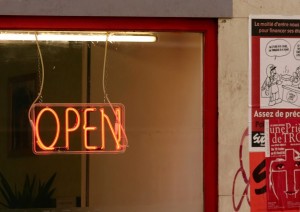
CBD Please, a shop that caters to CBD products, is just one of the shops opening to fill the growing need across the nation
As advocates of cannabidiol begin to find their voice on a national level, families continue to grow anxious at the speed that local and state agencies move towards bringing CBD to their state. CBD has, however, recently found advocates in elected officials, but stories of families being forced to take drastic measures continues.
Bonni Goldstein, MD, medical director of Canna-Centers, explains that “it’s often desperation — not rebellion against convention — that pushes parents to seek medical marijuana for their children.”
Families find hope in every story they read, many of which point to CBD as a solution for families desperate for any relief for their child. Goldstein recalls families moving across the country to California just to seek CBD for their children. This story is unfortunately not a unique situation, as families have been reported to make the move to Colorado as well shortly after marijuana was legalized.
There are, however, still many unknowns and advocates continue to stress that government acceptance will help in bringing stronger clinical studies on the effects of CBD.
When Goldstein prescribes cannabidiol to children with epilepsy, she always clarifies to their parents that the long-term risks of the compound are unknown. “It wasn’t available 30 years ago,” she explains. Yet, “every single parent has said to me, ‘Well, I don’t know the long-term effects of the medications my child is taking, and the seizures haven’t stopped. I’d like to give my child the best chance possible.’”
Despite some of the unknown variables, parents almost always accept CBD. “To many of these people, it’s just another medication to try,” says Goldstein.
For Ray Mirzabegian, director of the nonprofit Realm of Caring California, the decision to seek out CBD was an obvious one. Just a couple years ago, his 10-year-old daughter, Emily, was taking four different anti-seizure medications. “Unfortunately, that causes a vegetative state,” he tells Yahoo Health. She’d tried a total of 13 medications, and none effectively controlled her epilepsy. At her worst, she was having 120 seizures a day, at best, 40 to 45 a month. “At that point, [doctors] start retrying some of the medications that failed,” hoping to create a cocktail of several drugs that would work, says Mirzabegian. “We decided that’s not the route to go.”
It’s not just in the United States that parents are becoming desperate. “I have a family who is actually coming to see me from Europe, because they can’t find any relief for their child’s seizures,” says Goldstein. In Chile, a group of about 100 parents have banded together, creating a group called Mama Cultiva, or “Mama Grows,” designed to share information about cultivating marijuana and extracting cannabis oil to treat their children with epilepsy. Many grow marijuana in their own backyards, even though they could be imprisoned for up to 15 years for doing so.
In California alone, the waiting list for Charlotte’s Web is between 1,200 and 1,300 people. “Nationwide, it’s 14,000 probably,” Mirzabegian says.
To combat this waiting list, CBD dispensaries have started to pop up to meet this growing demand in the US. In Boston, Bill Downing opened CBD Please, a shop that caters to CBD products.
These products come in the form of powders, mouth sprays, capsules, topical ointments, and vape oils. According to their website, patients must have a doctor’s recommendation to receive these hemp based CBD products.
While CBD Please is not approved by the Massachusetts Department of Public Health, Downing has taken a stand to sell CBD as licensed dispensaries have not been able to meet the demand of patients.
Massachusetts law now provides that medical marijuana patients can grow their own cannabis, or designate someone else to grow it for them, called caregivers. Each caregiver is only allowed to provide the plant for one person, but Downing serves many patients. Demand is simply too high for caregivers to grow enough cannabis for everyone when they can only legally provide for one patient, according to WBUR.
“The message is don’t wait for the Department of Health. They’re screwing everything up very badly. And if you need medical marijuana, you can get it now,” Downing says.
This feeling has spread to New York as New York State CBD opened recently to meet this growing demand in New York. New York State CBD claims to be the first brick and mortar retailer of cannabidiol products. While they may be the first in the state of New York, they are undoubtedly the first of many who will enter this market looking to fill a serious gap in cannabidiol access.
